Chloe, 16, found lifeless ‘surrounded by seven Rexona cans’
Logan teenager Chloe Rowe has a ‘long, uncertain journey’ ahead of her. The 16-year-old has severe brain damage after inhaling cans of deodorant.
QLD News
Don't miss out on the headlines from QLD News. Followed categories will be added to My News.
When Chloe Rowe was found without a pulse lying in the dark in bushland she was surrounded by seven empty deodorant cans.
The 16-year-old had been chroming – inhaling toxic fumes to get high - with her boyfriend, when she went into cardiac arrest.
For 27 minutes paramedics performed CPR on the teenager before she was rushed to the Royal Brisbane and Women’s Hospital with a hypoxic brain injury.
Australia is in the grip of a chroming crisis with teenagers just like Chloe engaging in the dangerous but legal form of substance abuse.
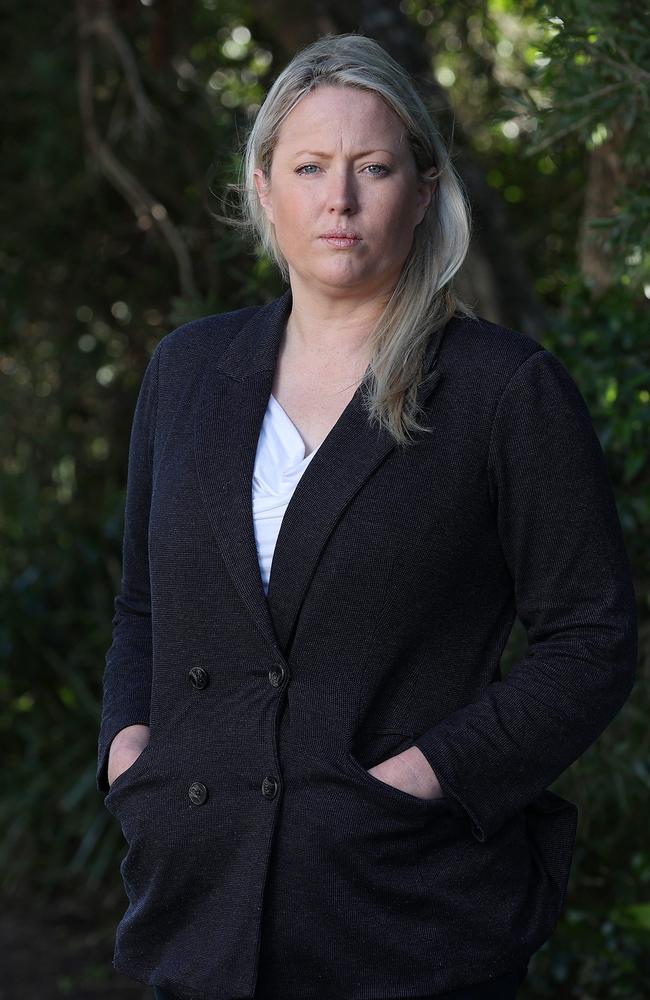
Her mother Sarah Nevins said she was shocked to discover that Chloe had been inhaling and called for legislation to outlaw the practice and for manufacturers to remove toxic ingredients.
“I had no idea she was chroming, I didn’t even know that people did that,” the Beenleigh mother said.
“I would have had no idea that kids inhaled Rexona, but now I know it’s called Rexing. I thought chroming was with paint and glue.”
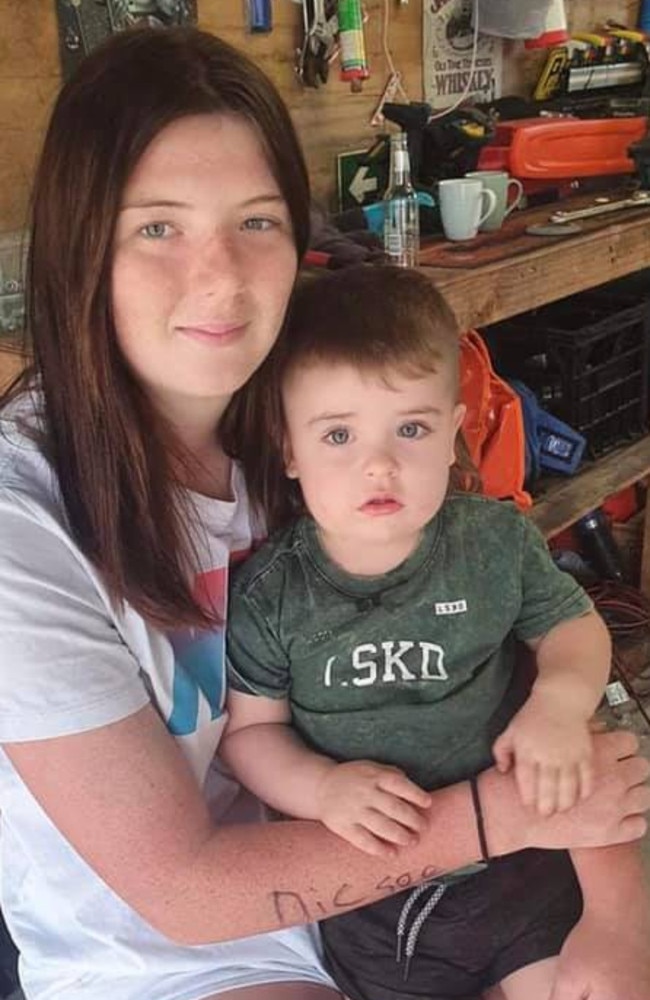
Since her collapse on June 1, Chloe has opened her eyes and has begun to respond to voice commands.
But her brain has been severely damaged and Ms Nevins says her daughter has a “long, uncertain road” ahead of her.
The Ormeau Woods State High School student still needs a tracheostomy tube to breathe and daily physiotherapy to stop her limbs from posturing.
“It’s upsetting because you’re looking at a wasted life,” Ms Nevins said.
“Her quality of life is going to be severely impacted for the rest of her life over a couple of seconds.”
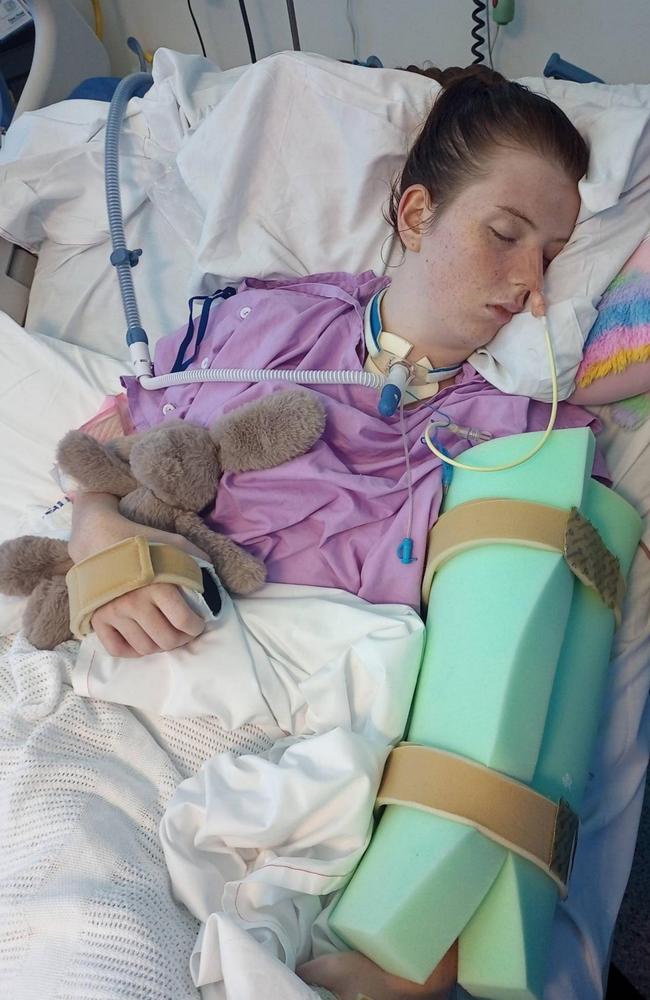
Queensland Health statistics show that chroming hospitalisations have increased over the past five years and that between 2018/19, 115 Queenslanders were hospitalised due to chroming.
More than half were under 19.
Queensland Ambulance Service clinical director Tony Hucker said paramedics had attended jobs where kids as young as eight had been inhaling cans.
Mr Hucker said the practice was dangerous because whenever a propellant is breathed in, users were “robbing themselves of oxygen”.
“We do see kids in general around the city doing a lot of inhalants,” he said.
“The big risk in any inhaling situation this phenomena Sudden Sniffing Death Syndrome.”
Mr Hucker said between two and three people die each year in Queensland due to inhaling.
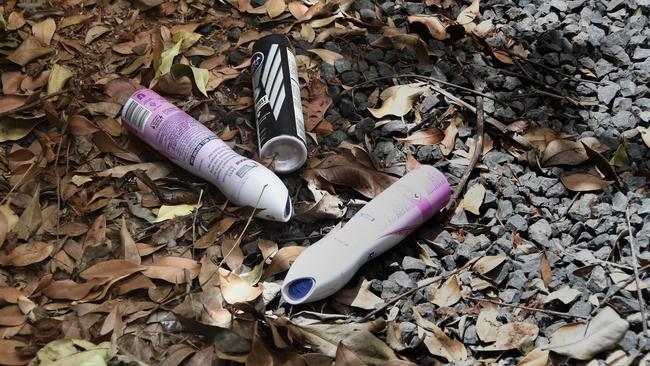
Ms Nevins believes Chloe’s brain injury could have been prevented if inhaling was illegal in and companies like Unilever, that owns Rexona, remove the toxic ingredients from their aerosol cans.
In 2019, Queensland’s then Health Minister Steven Miles held a roundtable of industry retailers to discuss the issue of chroming.
Authorities have cautioned that criminalising use could result in young people hiding or using inhalants in more dangerous places.
According to a Unilever spokesperson, 90 per cent of aerosol products use hydrocarbons, the intoxicating component, as the propellant.
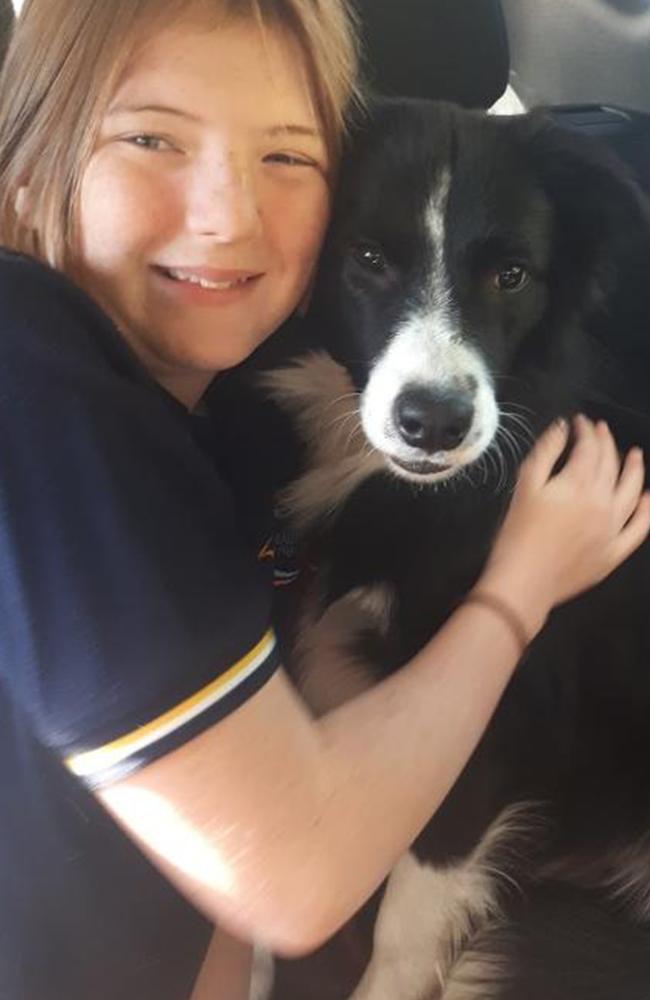
The company which makes Rexona said that hydrocarbon alternatives such as bitterants had been explored but none have proven successful.
“We are aware of Chloe’s case and extend our deepest sympathies to Chloe’s friends and family,” the statement read.
“One of the key challenges is that a huge range of aerosol products available in stores can be used for chroming.
“We continue to invest heavily in this work, which is ongoing.
“In addition to our ongoing reformulation work, Unilever has introduced even more prominent, industry-leading warnings on our packaging.”




